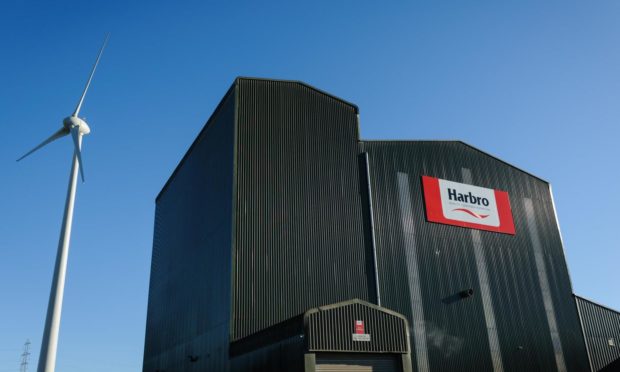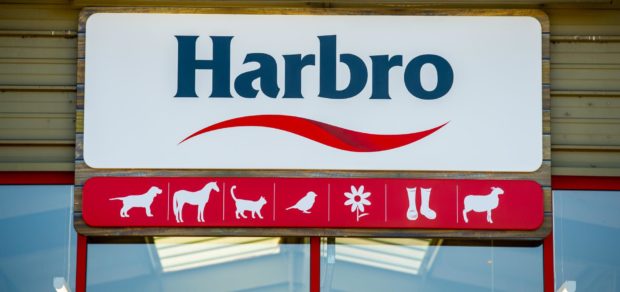Scottish animal feed firm Harbro enjoyed a 76% boost in pre-tax profits last year despite the twin challenges of Covid-19 and Brexit uncertainty.
The Turriff-headquartered company, which produces a range of animal feed as well as running a network of 21 country stores across Scotland, posted pre-tax profits of £2.989 million for the year to June 30, 2020. This is up from pre-tax profits of £1.692m the year before.
Turnover at the company was down by almost 3% to £115.193m, from £118.568m previously.
Harbro‘s managing director, Chris Baxter, said profits were up as a result of improved market share, new product offerings and cost savings.
“2020 was a difficult and challenging year for everyone and this has been no different for agriculture, with Covid and Brexit putting pressure on, and adding challenges to, both operations and service levels,” added Chris.
He said the business had achieved big improvements in efficiency during the year as a result of capital investment and implementing new operational systems.
“We continue to see growth in the business and are very encouraged with current year results, driven by increased market share and product development,” added Chris.
“Our retail stores are performing well in a tough space and we are delighted that product sectors such as pet, garden and horse, along with agri, continue to grow.”
He said the recent expansion of shops in central Scotland had gone well and the company planned to move its Lochgilphead store to a new site in the next couple of months to expand its offering in the area.
Chris added: “Following a fire in 2019, our reinstated Birkhill Mill in Lanarkshire is now the most modern feed mill in Scotland delivering improved quality and efficiency.
“We have invested in an automated mineral bucket line to meet increasing demand for our Energyze range of products, which has grown significantly in the last 18 months.”
Harbro’s chief financial officer, Ross Baxter, said the company had reduced its net debt by £5.5m to £10.8m during the year and its employee numbers had also reduced to 483, from 523 previously.
He said: “We have had a clear strategy over the last few years of focusing on working capital, cash flow and reducing our net borrowings.
“We have introduced tighter control, and capital investment decision-making with good discipline around return on investment. The consequence has been a reduction in both our working capital facilities and term debt.”
Chris said he was upbeat about the company’s future and the role it could play in helping farmers reduce the emissions on their farms and the use of soya feed products.
He added: “We are also committed to reducing our own carbon footprint throughout the business and have recently launched an environmental strategy and a number of internal projects to make the group lead the way in reducing carbon footprint internally, as well as supporting customers to introduce their own environmental initiatives on farm.”

